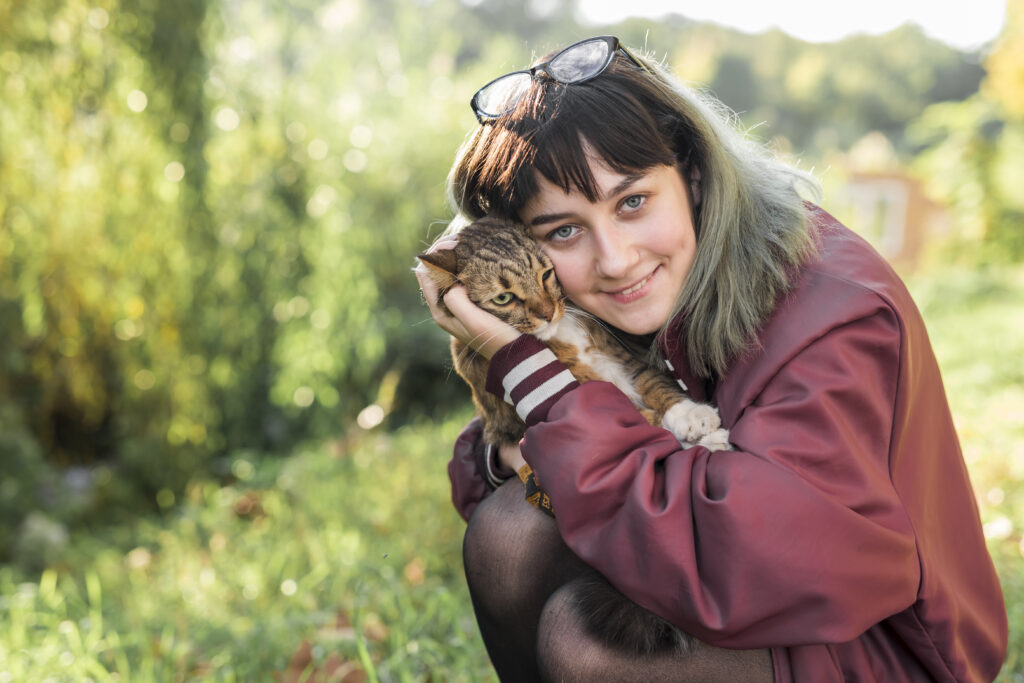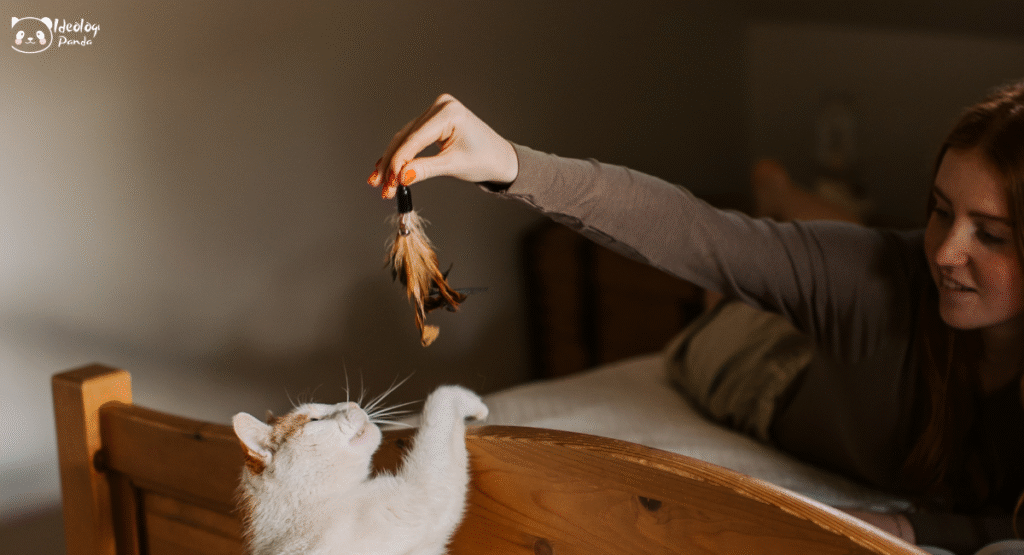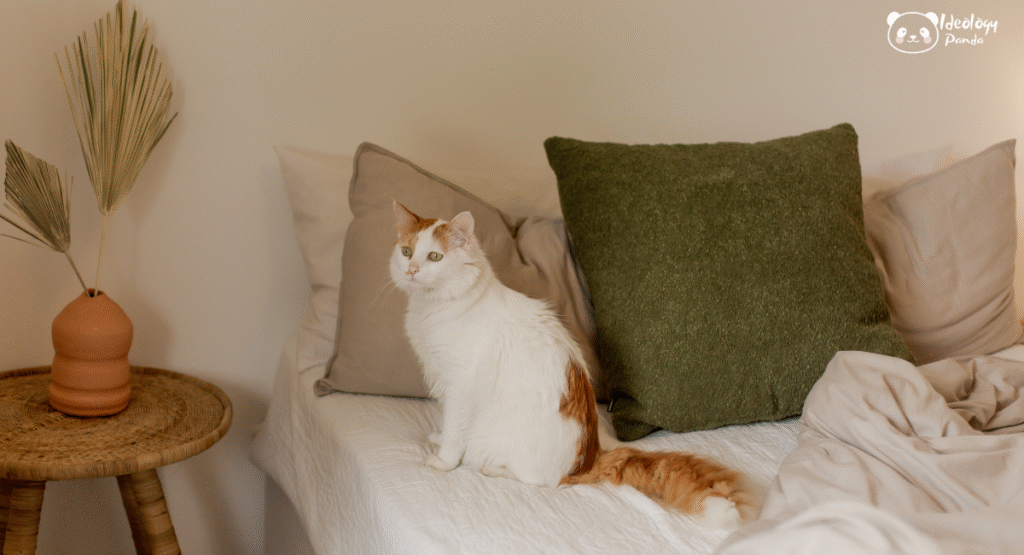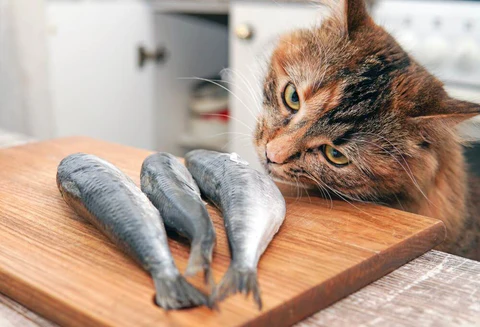Why Does My Cat Love Me So Much? Understanding Feline Affection
Have you ever wondered, “Why does my cat love me so much?” Cats are often labelled as aloof or independent, but if you’re a loving cat owner, you know this stereotype isn’t always true. Many cats form deep, lasting bonds with their humans, showing affection in unique ways that melt our hearts. Let’s explore the surprising science and emotional reasons behind your cat’s intense love for you. Your Cat Sees You as Their Parent When asking “Why does my cat love me so much?” understand that domestic cats often view their owners as parental figures. Kittens rely on their mothers for food, warmth, and safety. When you feed your cat, care for their needs, and provide comfort, they associate you with that same nurturing love they felt from their mother as kittens. Your Cat Feels Safe and Secure With You One of the biggest reasons behind the question “Why does my cat love me so much?” is that you are their source of safety. Cats are both predators and prey in nature. This means they remain alert and cautious, but when your cat sleeps on you, exposes their belly, or kneads you with their paws, it shows they trust you fully. In behavioural studies across the USA, cats who felt safe showed more frequent affectionate behaviours like grooming their owners or sleeping curled on their chests. You Provide Food, Treats, and Enrichment While love isn’t purely transactional, food plays a role in why your cat adores you. Feeding time creates routine, positive anticipation, and trust. Cats also love you because you enrich their lives with toys, treats, play sessions, and scratching posts. These activities fulfil their hunting instincts and keep them mentally stimulated, making them associate you with joy and satisfaction. Your Cat Loves Your Scent and Voice Have you noticed your cat sleeping on your clothes, rubbing their face on your shoes, or curling up where you sit? Cats have an exceptional sense of smell and find comfort in your scent. Your unique smell calms their nerves and makes them feel close to you even when you’re not there. Similarly, your voice soothes them. Research shows cats respond better to their owner’s voice than to strangers, recognising specific tones and words. Your Cat Releases Oxytocin Around You Why does my cat love me so much? Science has an answer. Studies show that cats release oxytocin, the “love hormone,” when interacting with their owners. This is the same hormone humans release during hugs or bonding moments, proving that your cat’s affection has a real biological foundation rooted in love and trust. Your Cat Enjoys Your Attention Cats are social creatures in their own unique way. When you spend time with them, talk softly, brush their fur, or engage them with toys, it builds a positive emotional bank account. They begin to love you because they associate you with happiness, relaxation, and mental stimulation. If your cat sits on your laptop while you work or curls up on your books, they’re seeking your attention and presence. You Respect Their Independence Another reason behind “Why does my cat love me so much?” is that you respect their boundaries. Cats love humans who understand their moods. Forcing cuddles, picking them up against their will, or disrupting their naps can reduce trust. Owners who give cats space and let them initiate contact build stronger, deeper bonds. They See You as Part of Their Family In wild colonies, cats form social groups with grooming, rubbing, and sleeping together. Domestic cats treat their owners similarly, viewing them as trusted companions. When your cat grooms you, headbutts you, or sleeps beside you, they are treating you as a family member, which is the highest form of love and acceptance in feline behaviour. Slow Blinking is Their Love Language When your cat looks at you with half-closed eyes and blinks slowly, it’s their way of saying “I love you” and “I trust you.” Behaviourists recommend returning the slow blink to reassure them of your affection, further strengthening your bond. Try this daily to deepen your connection effortlessly. Why Does My Cat Love Me So Much More Than Others? Sometimes, cats bond deeply with one person in the household. This happens because of consistent routines, feeding, gentle interactions, and the specific energy you radiate. Cats sense calm, patient, and non-threatening individuals, gravitating towards them for safety and affection. Ways to Deepen Your Cat’s Love for You Now that you know “Why does my cat love me so much?”, here are simple ways to keep their love strong: Signs Your Cat Truly Loves You If you’re still wondering “Why does my cat love me so much?” look for these signs: These gestures show that your cat not only loves you but feels completely safe, happy, and content in your presence. Final Thoughts Why does my cat love me so much? The answer lies in the pure, instinctive, and emotional bond you share with your feline friend. Cats may appear independent, but deep down, they crave safety, warmth, and affection just like any other living being. Your scent soothes them, your presence comforts them, and your gentle interactions build their trust. Every slow blink, purr, headbutt, or kneading paw is a declaration of their love and attachment towards you. Unlike humans, cats do not love with expectations; their love is rooted in trust, routine, and mutual respect. They see you as their protector, family, and safe home in this vast world. To continue nurturing this bond, always respect their boundaries, spend quality time together, talk to them softly, and ensure their environment is enriched and peaceful. Their love may be quiet and subtle, but it is deeply genuine and long-lasting. Remember, when your cat curls up next to you or gazes at you with half-closed eyes, they’re saying, “You are my favourite human, and I love you unconditionally.” Cherish this bond every day because a cat’s love is one of life’s simplest and purest gifts.





